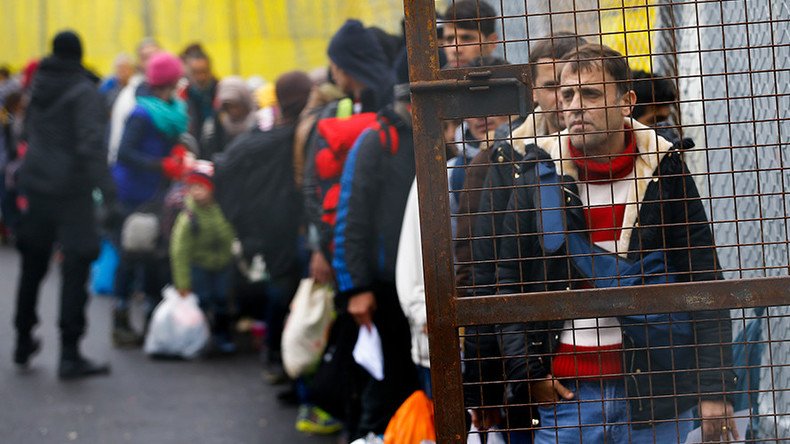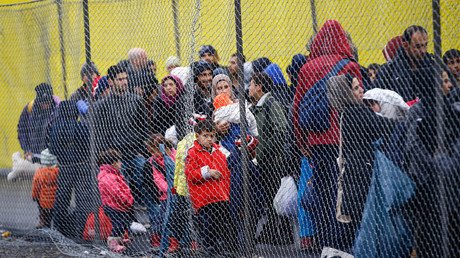Austria builds up border force amid heavy criticism of 80 refugees-a-day cap

Austria has announced it will deploy extra troops to help patrol the border and carry out checks on those arriving in the country. The move comes amid a wave of criticism directed at the rigid asylum application limit imposed by the government on Friday.
Austria's Defense Ministry said it would increase its army presence on the border to 1,450 officers and deploy units of military police across the country to stem the inflow of asylum seekers, and deter violent individuals from crossing the border.
"These forces will be able to deploy all over the country and be brought into action using army helicopters at short notice as the interior ministry requires," the Defense Ministry said in a statement on Sunday, as cited by AFP.
It also intends to send two armored personal carriers and three military transport vehicles to prevent asylum seekers from illegally bypassing border controls.
The heightened security measures are aimed at ensuring the implementation of a controversial cap on refugee intake, in effect since Friday, which stipulates that only 80 asylum applications can be processed in Austria per day. A further 3,200 migrants will be allowed to pass through Austria on their way to third countries.
Austria’s decision has sparked concerns in Germany, which is bearing the brunt of the European refugee crisis, having accepted more than a million refugees last year. German Interior Minister Thomas de Maiziere has lashed out at Austria’s unilateral migration policy.
"Even for security reasons, this is unacceptable. We won't allow this to continue long term," de Maiziere told ARD public television on Sunday, adding that he would put the issue on the agenda of the next EU interior ministers meeting next Thursday.
"It won't work if some countries think they can solve the problem by putting extra weight on Germany's back," he said, fearing that asylum seekers rejected by Austria will eventually land in Germany.
Werner Faymann, head of the Austrian government, commenting on the disagreements between the two countries, admitted “differences already exist” in an interview to Kleine Zeitung on Sunday. “We are for establishing the limits. [German Chancellor Angela] Merkel will not set such a limit. Maybe she will do this one day,” Faymann added, pointing out “Germany is 10 times bigger than Austria and has 10 times more resources.”
Far-right activists in Vienna hand out pepper spray for self-defense (VIDEO) https://t.co/mPGbgEWzVepic.twitter.com/akAaE1TnUV
— RT (@RT_com) February 15, 2016
The decision has also struck a blow to EU–Austria relations. The EU has denounced the policy as “plainly incompatible with Austria’s obligations under European and international law” in a letter written by EU Migration Commissioner Dimitris Avramopoulos on Thursday.
"Austria has a legal obligation to accept any asylum application that is made on its territory or at its border", Avramopoulos said. He added that Austria’s initiative to deny entry to asylum seekers wanting to transit through its territory to reach other EU states isn’t justifiable.
Despite the harsh rhetoric from the EU, Austria doesn’t plan to backtrack on its policy.
"We know already now that (without the cap) we would be well above the number of migrants that we can cope with by the middle of the year at the latest," Werner Faymann told the Kleine Zeitung, adding that criticism from the EU “surprised” him.
Last year, Austria processed 90,000 asylum applications, which was the second highest number of refugees per capita in Europe, after Sweden.













